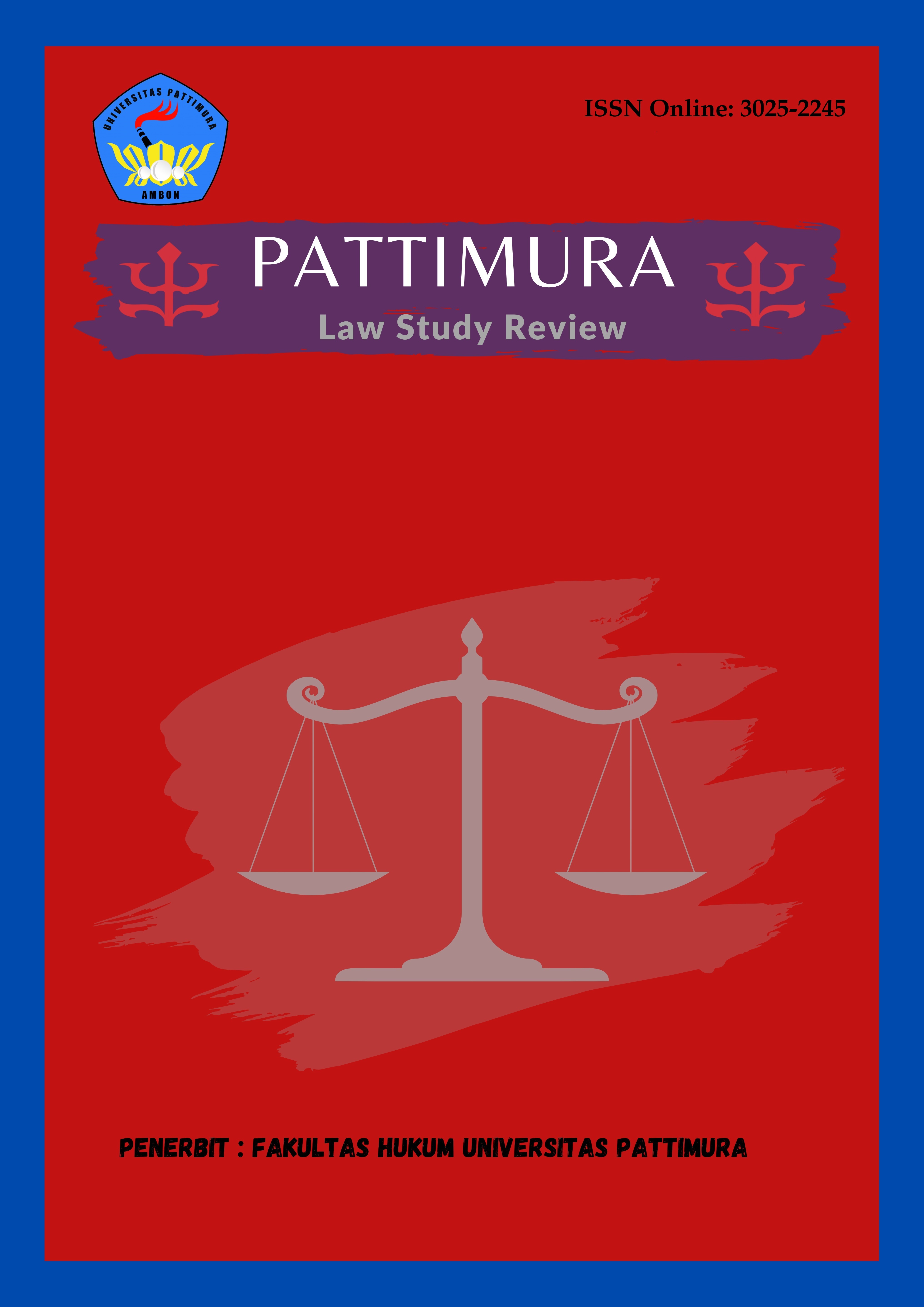Penegakan Hukum Pidana Terhadap Kekerasan Berbasis Gender Online
Abstract
KBGO as internet-facilitated violence is almost the same as KBGO in the real world. KBGO occurs as a result of the development of widespread internet coverage, sophisticated distribution of information technology, and the popularity of social media. The National Commission on Violence Against Women classifies several types of KBGO, namely approaches to deceive (cyber grooming), online harassment (cyber harassment), hacking, illegal content (illegal content), invasion of privacy (infringement of privacy), threats to distribute personal photos/videos (malicious distribution), defamation (online defamation), and online recruitment (online recruitment). According to Article 1 number 3 of Law Number 11 of 2008 concerning Information and Electronic Transactions (hereinafter abbreviated as the ITE Law), it is a technique for collecting, preparing, storing, processing, announcing, analyzing, and/or disseminating information. One of the information technology products that has an important role and has succeeded in spurring changes in the social order is the internet. The internet not only spurs aspects that have a positive impact, but can also have a negative impact, one of which is crime in the realm of the internet (cyber crime). This research writing uses a normative legal research type, with descriptive analysis research specifications. The data used are secondary data obtained through literature studies, then qualitative analysis is carried out. The results of this study indicate that the legal regulation of online gender-based violence in legislation as a whole, there are several legal instruments that can be used to ensnare perpetrators of online gender-based violence in Indonesia, but there is still a lack of regulations that specifically deal with gender-based violence in cyberspace. Existing laws are still general and do not provide specific protection against the gender dimension in digital violence. Criminal law enforcement against online gender-based violence currently, for many victims who still feel that justice has not been fully achieved due to the slow legal process, social stigma, and lack of adequate support, limited knowledge of the community and law enforcement officers and the difficulty of deleting content that has been distributed.
Downloads
References
Buku
Peter Mahmud Marzuki, (2005), Penelitian Hukum, Prenada Media, Cetakan Pertama, Jakarta.
Peter M Marzuki, (2013), Pengantar Ilmu Hukum (Edisi Revisi), Kencana Prenanda Media Group, Jakarta.
Elias Zadrach Leasa, (2018) “Aspek Legal Spirit Undang-Undang Nomor 23 Tahun 2004 Tentang Penghapusan Kekerasan Dalam Rumah Tangga.
Jurnal
A. Watkins, "Revenge Porn and the Weaponization of Digital Media," Journal of Media and Gender Studies, vol. 27, no. 2, 2019.
Association for Progressive Communications (APC), “Online gender-based violence: A submission from the Association for Progressive Communications to the United Nations Special Rapporteur on violence against women, its causes and consequences”, Artikel, 2017.
Association for Progressive Communications (APC), “Online gender-based violence: A submission from the Association for Progressive Communications to the United Nations Special Rapporteur on violence against women, its causes and consequences”, Artikel, 2017.
Ellen Kusuma dan Nenden Sekar Arum, Memahami dan Menyikapi Kekerasan Berbasis Gender Online: Sebuah Panduan, Southeast Asia Freedom of Expression Network,Denpasar, 2019.
Jawade Hafidz Arsyad, “Perlindungan Hukum Korban Kekerasan Berbasis Gender Online (KBGO) Dalam Hukum Positif Indonesia,” Jurnal Cakrawala Informasi 2, no. 2 (2022): 26–41, https://doi.org/10.54066/jci.v2i2.241.
Noviyanti Soleman, Kekerasan Gender Berbasis Online Selama Pandemi COVID-19 di Indonesia, Al-Wardah, Vol.15, No.1 (Juni 2021), p.51-52
Puteri Hikmawati, Pengaturan KekerasanBerbasis Gender Online: Perspektif Ius Constitutum dan Ius Constituendum,Jurnal Negara Hukum, Vol.12, No.1 (Juni 2021), p.61
SAFEnet, ―Memahami Dan Menyikapi Kekerasan Gender Berbasis Online: Sebuah Panduan‖ 2 (2019): 20, https://id.safenet.or.id/wp-content/uploads/2019/11/Panduan-KBGO-v2.pd
Sahat Maruli Tua Situmeang, ―Kebijakan Kriminal Dalam Penegakan Hukum Untuk Mewujudkan Keadilan Dalam Perpektif Hak Asasi Manusia,‖ Res Nullius1, no. 1 (2017): 26 36, https://doi.org/10.5749/minnesota/9781517901585.003.0004.
Wadjo, H. Z., Leasa, E. Z., Latumaerissa, D., & Saimima, J. M. (2020). Penyelesaian Perkara Anak Sebagai Pelaku dan Korban Ditinjau Dari Asas Kepentingan Terbaik Bagi Anak. Sasi, 26(2), 201-212.
Lain-Lain
https://ambon.tribunnews.com/2024/06/21/soal-video-asusila-opa-dan-perempuan-muda-di-ambon-polisi-sebut-keduanya-bisa-kena-uu-pornografi https://ambon.tribunnews.com/amp/2024/06/21/soal-video-asusila-opa-dan-perempuan-muda-di-ambon-polisi-sebut-keduanya-bisa-kena-uu-pornografi.
Komnas Perempuan, "Laporan Kekerasan Berbasis Gender Online di Indonesia", Laporan Tahunan 2023.
Lintang Setianti, Mengenal Kekerasan Berbasis Gender Online, 4 Mei 2021, https://www.elsam.or.id/teknologi-dan-ham/mengenal-kekerasan-berbasis-gender-online diakses pada 07 Oktober 2024.
Copyright (c) 2025 Nurul Hadija Ismail, Margie Gladies Sopacua, Muammar Muammar (Author)

This work is licensed under a Creative Commons Attribution-NonCommercial 4.0 International License.
Authors who publish their manuscripts in this Journal agree to the following conditions:
- The copyright in each article belongs to the author, as well as the right to patent.
- Authors are able to enter into separate, additional contractual arrangements for the non-exclusive distribution of the journal's published version of the work (e.g., post it to an institutional repository or publish it in a book), with an acknowledgment of its initial publication in this journal.
- Authors are permitted and encouraged to post their work online (e.g., in institutional repositories or on their website) prior to and during the submission process, as it can lead to productive exchanges, as well as earlier and greater citation of published work.
- Authors have the right to self-archiving of the article (Author Self-Archiving Policy)













